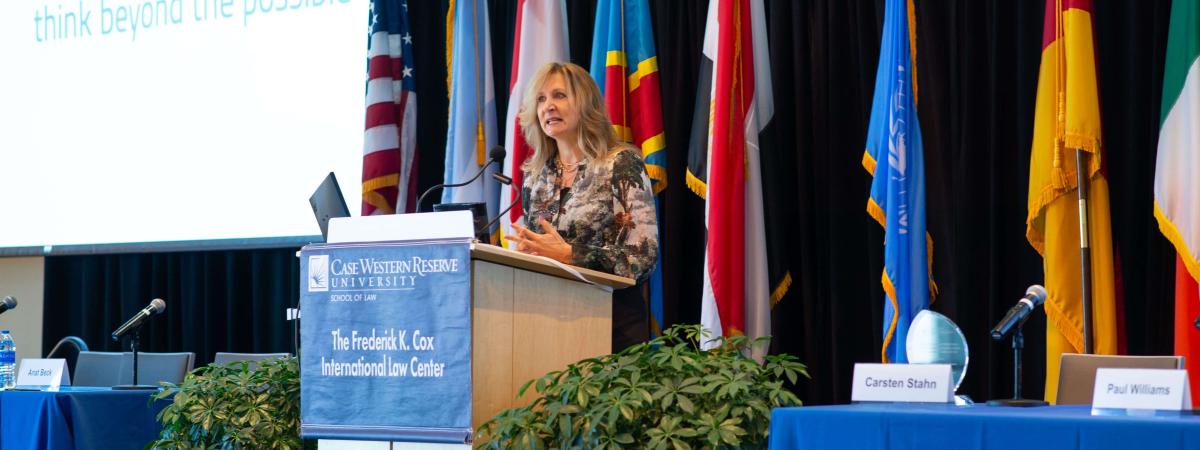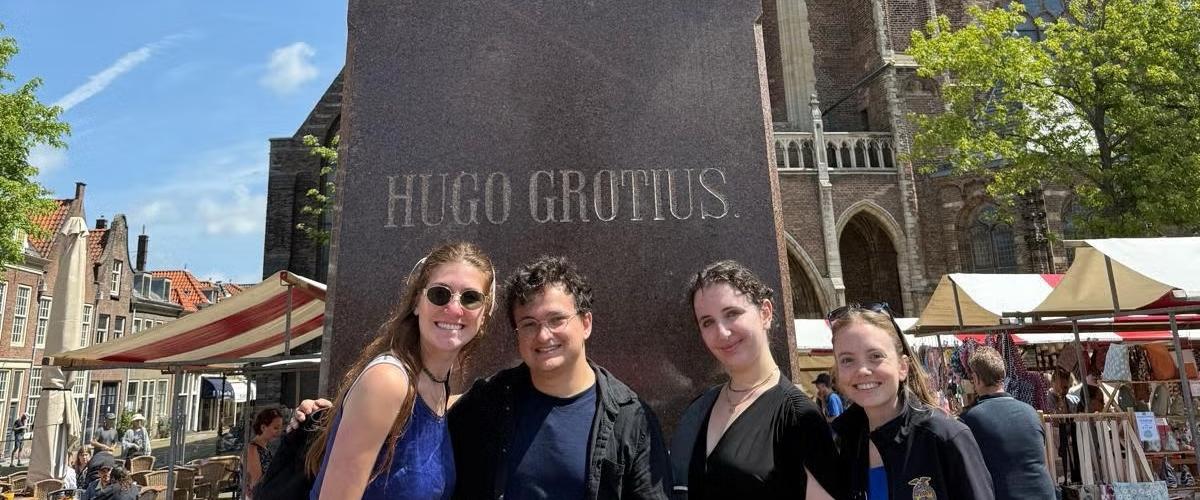Last summer, Case Western Reserve University School of Law Co-Dean Michael Scharf and his colleagues at the Public International Law and Policy Group (PILPG) drafted model legislation to establish the Ukraine High Court for War Crimes. The project was the result of weeks of research and meetings with Ukrainian and U.S. legal experts. The model legislation would create an “internationalized” domestic court modeled on the existing High Anti-Corruption Court of Ukraine to prosecute high-level cases of war crimes, crimes against humanity and aggression. The draft was subsequently translated into Ukrainian and provided to members of Ukraine’s parliament. The proposal was the subject of a story in the Aug. 2022 issue of Foreign Policy magazine.
The International Criminal Court (ICC) recently issued an arrest warrant for Russian President Vladimir Putin for war crimes committed in the abduction of Ukrainian children and their transfer to Russia for adoption by Russian parents. But the ICC is designed to prosecute only a handful of leaders, and it can’t prosecute the crime of aggression.
Ukraine has opened domestic investigations into some 90,000 incidents of Russian war crimes committed since the Feb. 2022 invasion. “As the conflict goes on, more and more Russian soldiers, colonels and generals are going to fall into the custody of the Ukrainians,” Scharf told Foreign Policy. “And as that happens, there’s going to be a lot of interest in starting the prosecutions. … I cannot imagine that the current Ukrainian court system can handle that.”
Some experts have suggested that Ukraine should create a hybrid court with international prosecutors and judges like the Special Court for Sierra Leone which tried Liberian President Charles Taylor. “But Ukraine’s Constitution prohibits the creation of special or extraordinary courts and provides that only Ukraine nationals can be judges in Ukraine courts,” said Scharf. “What’s more, the Ukrainian Constitution prohibits amendments during times of martial law, as has been the case since 2014.”
So Scharf and his PILPG colleagues felt the answer was an internationalized Ukrainian court like the Iraqi High Court, whose prosecutors were assisted by US Department of Justice attorneys, whose defense counsel were foreign attorneys, and whose judges were assisted by foreign judges associated with the International Bar Association. They knew that Ukraine had established a similar court, the High Anti-Corruption Court, in 2018, which could serve as a model.
Seven months later, on March 27, 2023, US Ambassador for Global Criminal Justice, Beth Van Schaack, announced that the United States had decided to throw its support behind the creation of an internationalized domestic court in Ukraine to prosecute the Russian crime of aggression. The US proposal hues closely to the model set forth last summer by PILPG.
A few days later, Scharf and his colleagues penned an essay in Just Security, the prestigious online foreign policy forum, which explained the benefits of an internationalized Ukrainian court for prosecuting the crime of aggression. “Whatever shape an aggression tribunal ultimately takes,” they concluded, “we applaud the new US position which is likely to generate momentum for the prosecution of Russia’s crime of aggression against Ukraine.”
Scharf co-founded PILPG with his former State Department colleague Paul Williams 26 years ago. The Nobel Peace Prize-nominated NGO has participated in two dozen peace negotiations, advised every international war crimes tribunal and its report on Myanmar atrocities was instrumental in convincing the United States to declare the attacks against the Rohingya people to constitute genocide last year. “CWRU law students, professors and alumni have been fortunate to have the opportunity to play an important role in PILPG’s work over the years,” said Scharf.





